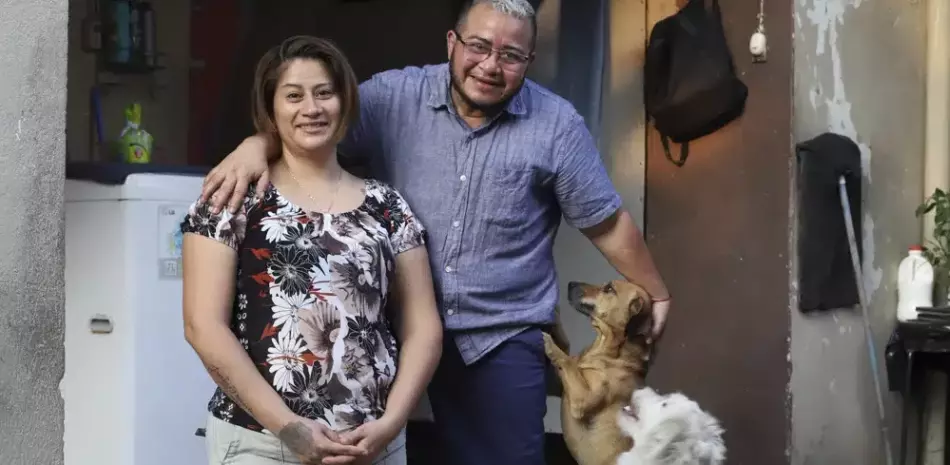The scene is repeated like a bad dream from which Fabricio Chicas can’t wake up.
He stops in front of the window and whoever receives his identity document looks at him suspiciously. He goes from the paper to his face and from his face to the paper. Are you the one in the photo? Sure? Why do I read a woman’s name and see a man in front of me?
The Salvadoran confronts bank, hospital, and bureaucratic office personnel as if their existence warranted a plea: yes, miss, a female name appears there, but in reality I am a 49-year-old transgender man who goes through life giving uncomfortable explanations because I don’t There is a law that allows me to process a card that reflects who I am.
Theirs is a fight shared by all trans men and women in El Salvador. In this country, history has not only been marked by gangs, but by a conservative context in which the Catholic and Evangelical Church have a broad presence, abortion is penalized without exception, and the legalization of equal marriage seems an unrealizable desire.
The Supreme Court determined in 2022 that the lack of conditions for someone to change their name for reasons of gender identity constitutes discriminatory treatment and ordered the Legislative Assembly to issue a reform that facilitates the process, but the term expired three months ago and the agency did not comply.
Human Rights Watch (HRW) and Salvadoran groups such as Colectivo Alejandría and Generación Hombres Trans have reported the omission.
President Nayib Bukele’s party controls Congress and has shown no interest in legislating for the rights of the LGBTI community, but Salvadoran activists are not giving up the battle.
SOCIAL COST
Some share their life stories. They seek rapprochement with politicians. They act before the courts. They renew their patience and explain over and over again the social cost of being a trans man or woman.
____
The world crashes like irreparable glass when someone says: this body is not mine and this name is not who I am.
Rejection is disguised with nuances and, in the case of Fabricio, his mother thought that giving in would make him suffer and put him in danger. Initially, she agreed to buy him men’s clothes and began to call him “my child”, but Fabricio was a victim of abuse at the age of nine and his mother felt that in order to protect him from other evils, they would have to go back.
the Depression
This is how girl’s clothes returned, long hair, braids. “It was the end,” says Fabricio. “It was the depression; It was I don’t want to live.”
At the age of 15, Fabricio met a trans man who told him about hormonal treatments that would transform his body. He also gave her some advice: “break your breasts” with a clothes iron.
The pressure of the metal on his skin did not prevent the growth of his breasts, but it did cause bruising, pain that barely allowed him to get dressed, and an infection that sent him to the hospital.
Frightened, her mother made her promise never to risk her life again. No injections or body changes. She “she said that she saw me as a male lesbian, as the inner child that she was.”
So Fabricio decided what so many other transgender people have done: I’m going to grow up, I’m going to work and I’m going to leave.
